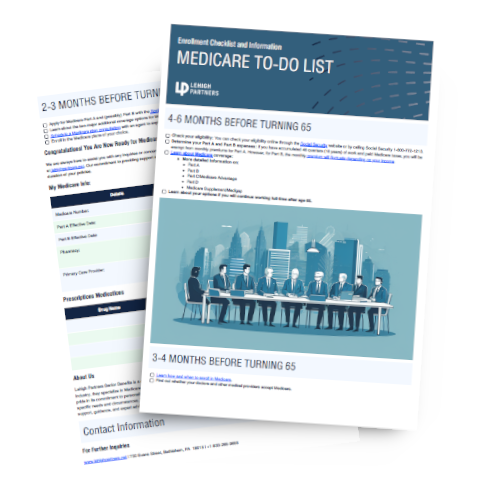Medicare is a federal health insurance program primarily designed for individuals age 65 and older. However, many people wonder if they can enroll in Medicare without retiring. In this article, we will explore the options and scenarios for enrolling in Medicare while still working, providing valuable information for those who are considering their healthcare options.
Enrollment Eligibility for Medicare
Typically, individuals become eligible for Medicare at age 65. However, eligibility is not contingent on retirement status. If you are employed and have access to employer-sponsored health insurance, you have the option to delay enrolling in Medicare Part B (medical insurance) without penalty as long as your employer's insurance coverage is considered "credible." Credible coverage refers to insurance that is as comprehensive or better than what Medicare provides.
Employer-Provided Health Insurance and Medicare
If you choose to delay enrolling in Medicare Part B due to your employer's health insurance coverage, it's crucial to understand the following points:
- Enrollment Timeline: You generally have an eight-month Special Enrollment Period (SEP) to enroll in Medicare Part B after your employment or employer-based coverage ends. This SEP prevents you from facing late enrollment penalties.
- Coordination of Benefits: Employer coverage may serve as the primary payer, and Medicare may be secondary. It's essential to discuss this with your employer's benefits administrator and the Medicare Coordination of Benefits Contractor to determine the most suitable coverage arrangement.
Enrolling in Medicare as a Working Individual
Enrollment in Medicare as a working individual can occur in certain situations:
- Part A Enrollment: If you've paid Medicare taxes for at least ten years (or 40 quarters) through your employment, you are likely eligible for premium-free Part A (hospital insurance) regardless of your current employment status.
- Voluntary Part B Enrollment: If you are eligible for premium-free Part A, but want to enroll in Medicare Part B, you can do so during the Initial Enrollment Period (IEP) or during a Special Enrollment Period (SEP) triggered by certain events like losing employer coverage or retiring.
Exploring Medicare Advantage and Prescription Drug Plans
In addition to Original Medicare (Part A and Part B), individuals who are still working can also consider Medicare Advantage (Part C) and Medicare Prescription Drug (Part D) plans. These plans are offered by private insurance companies approved by Medicare and provide an alternative to Original Medicare. Enrollment in these plans can often be done without retiring.
Should I contact an agent?
While whether or not to contact a Medicare insurance agent to help with deciding between employer and Medicare coverage may depend on individual circumstances, it can be a good idea for some individuals to seek guidance from an expert. A Medicare insurance agent can help you understand the differences between employer and Medicare coverage, potential cost savings, and the best choice for your needs and budget. Additionally, they can help individuals find the right Medicare plans for them by comparing premiums, out-of-pocket costs, and prescription drug costs.
Conclusion
Enrolling in Medicare does not necessarily require retirement. If you are still working and have employer-provided health insurance, it's crucial to understand the coordination of benefits and enrollment options for Medicare. Delaying enrollment in Medicare Part B may be an option, but it's important to be aware of timeframes and potential penalties. Additionally, exploring Medicare Advantage and Prescription Drug plans can provide alternatives to Original Medicare. Consider consulting with a healthcare advisor or Medicare specialist to navigate this process and determine the best course of action based on your individual circumstances.

